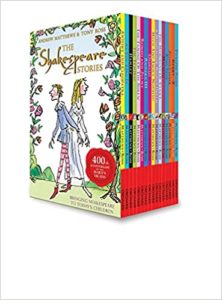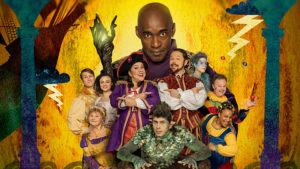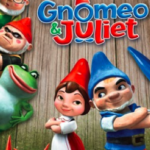Shakespeare Day 2020 – a study guide

Next Week, April 23rd, is Shakespeare Day. It is supposedly the day of William Shakespeare’s birth and death and is also known as ‘Talk like Shakespeare Day.’ Whatever you call it, it’s an opportunity to pepper your week with a bit of the Bard.
Why study Shakespeare
William Shakespeare’s strengths lay in creating believable characters and engaging plots, the foundations of any great story. To this day, storytellers still model characters, stories, novels, movies on his plays. Whether you’re interested in improving writing skills or critical thinking skills, Shakespeare’s works are a solid place to start.
A quote (or two) for every day

Shakespeare was also a wizard with words. To demonstrate how pervasive and relevant Shakespeare’s expressions still are in our modern culture, I like to throw out some of his most memorable quotes and phrases we still use 400 years later:
- “You’ve got the be cruel to be kind.” – Hamlet
- “Wild goose chase” – Romeo and Juliet
- “Green-eyed monster” – Othello
- “Fair play” – The Tempest
- “Lie low” – Much Ado About Nothing
- “Forever and a day” – As You Like It
- “Pure as the driven snow” – Hamlet
- “Seen better days” – As You Like It
- “Off with his head!” – Richard III (Yes, Carroll borrowed from Shakespeare)
- “Love is blind.” – Merchant of Venice
- “The game is afoot.” – Henry V
- “You can have too much of a good thing.” – As You Like It
- “Heart of gold” – Henry V
- “Break the ice” – Taming of the Shrew
- “Be-all, end-all” – Macbeth
For young and old
Now 400-year-old Elizabethan English can create quite the barrier between our children and the excellence of the Bard. Luckily, Shakespeare’s works have been translated into plain English for both young and old.

Usborne do short, illustrated and very accessible versions of many of Shakespeare’s plays in their Young Reading series. Nothing could make my Miss Seven okay with the ending of Romeo and Juliet though. Even translated and truncated, the Bard’s plot struck a chord with her.

I’ve used and recommend The Shakespeare Stories series by Andrew Matthews with my children from the age of seven. There are fewer illustrations and even those are black and white, but the stories are longer allowing for more character development.
For older readers, No Sweat Shakespeare has 13 of Shakespeare’s most well-known plays translated into plain English:
Read Shakespeare’s plays easily in the style of an exciting teenage novel
Master the plot, characters, themes & language of Shakespeare’s plays
Follow the original act & scene structure of Shakespeare’s text
There are many more resources for the older student at No Sweat Shakespeare too – like Shakespearian insults and a portrait of the Bard if he were alive today!
Talk like Shakespeare

Once the plot has been mastered in plain English, it’s okay to transport your young learners back to Elizabethan England with a real play. At seven and ten, I’ll be sticking with CBeebies Presents The Tempest and CBeebies Presents A Midsummer Night’s Dream.
The Globe Theatre are currently streaming some of Shakespeare’s plays as recorded in the Globe. Each play premiers for 14 days only on their YouTube channel. You can also take a virtual tour of the Globe Theatre on their website.
Alternatively, you can put some Elizabethan English on in the background and listen to The Show Must Go Online.
When you have an ear for Elizabethan English, try speaking it yourself. If you need help, try one of the various translators available. Just search ‘talk like Shakespeare.’
Critical Thinking
Once you feel like you really understand the characters and plot of a particular play, you can watch a modern-day interpretation together:

- Gnomeo and Juliet (5+) – Romeo and Juliet
- Strange Magic (6+) – A Midsummer Night’s Dream
- The Lion King (8+) – Hamlet
- She’s the Man (12+) – The Twelfth Night
- 10 Things I Hate About You (14+) – The Taming of the Shrew
- O (17+) – Othello
Please do your own research on the suitability of these films for your children. For example, Common Sense Media had widely varying views on the appropriate age for watching Strange Magic.
Discuss the similarities and differences in character and plot. I hope you fall down rabbit holes (now that one’s all Carroll) until Shakespeare is no longer Greek to you (Julius Caesar) ?.